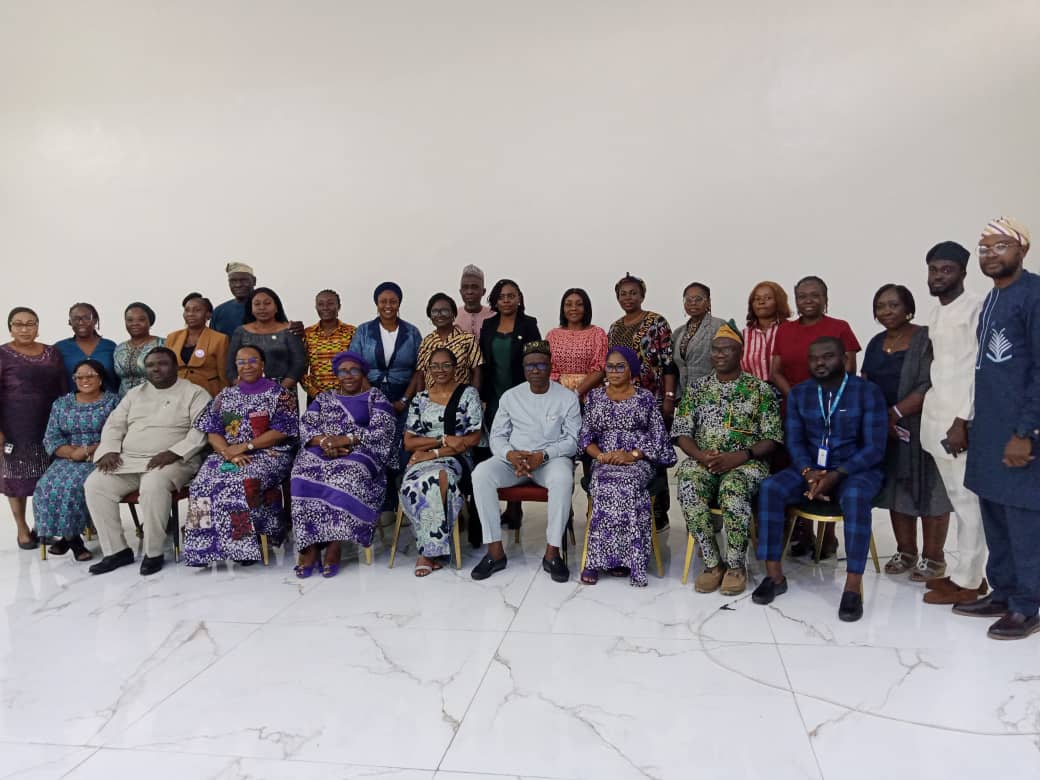Parents and guardians across the country are being encouraged to prioritize improved nutrition for children from an early age as a means to combat malnutrition. This was emphasized during a recent breakfast meeting held with chief executives and key stakeholders on the adoption of the Child Nutrition Fund and the implementation of six-month paid maternity leave in Lagos State.
Mrs. Ojo Olayinka-Modupe, Permanent Secretary at the Lagos State Ministry of Economic Planning and Budget, highlighted that many parents do not provide their children with nutrient-rich foods essential for growth. This, she said, leaves children vulnerable to malnutrition-related challenges. She stressed the need for coordinated efforts across government and educational institutions, calling on the State Universal Basic Education Board (SUBEB) to involve school managers in promoting healthy eating habits among students beyond the standard curriculum.
Mrs. Olayinka-Modupe also emphasized the importance of seasonal fruits and vegetables, advocating for collaboration among ministries such as Agriculture, Education, Health, Youth and Sports, and the Primary Healthcare Board. She suggested that integrating seasonal produce into children’s diets could significantly improve health outcomes. She noted, for example, that while carrots are known to support eye health, not many children actually consume them.
She cautioned that improving nutrition should go beyond just allocating budgets. Without strategic planning and effective implementation from relevant ministries, budgetary provisions may fail to produce the desired outcomes. As Lagos State prepares its 2026 budget, she urged all stakeholders to treat nutrition as a priority, aiming for tangible improvements in child health by the following year.
Mrs. Adeola Adegbite, Permanent Secretary of the Ministry of Basic and Secondary Education, added that her ministry’s goal is to foster “all-rounded students,” not just those focused on academics. She shared plans for ophthalmologists to visit secondary schools as part of a wider health sensitization campaign, and expressed optimism about the impact of increased inter-ministerial collaboration.
Mr. Sunday Okoronkwo, Executive Secretary of the Civil Society Scaling-Up Nutrition in Nigeria (SUN) Alliance, presented concerning data from the 2022–2024 National Demographic Health Survey. According to the survey, wasting in Lagos State increased from 6.4% to over 13%, a rise of more than 100%. Underweight rates also saw a 76% increase, while stunting remained around 17%. He pointed out that anaemia among women of reproductive age (15–45 years) stands at about 48–50%, indicating that nearly half are anaemic.
He described this situation as troubling, especially given the economic and social implications for vulnerable groups, including women and children. Okoronkwo shared that his organization had recently engaged in advocacy efforts urging the governor to re-approve and release ₦100 million for a one-to-one matching fund for child nutrition in Lagos. The approval of this fund will allow for the procurement of essential nutritional commodities like Multiple Micronutrient Supplements (MMS) and Ready-to-Use Therapeutic Foods (RUTF).
He also called for the establishment of a dedicated nutrition department to ensure representation and active implementation of nutrition-related strategies. According to Okoronkwo, despite common assumptions, malnutrition is very present in Lagos State, with increasing numbers of Severe Acute Malnutrition (SAM) and Moderate Acute Malnutrition (MAM) cases being recorded.
He further advised the public to focus on eating natural, nutrient-dense foods and clarified that physical chubbiness is not necessarily a sign of good health. He emphasized the shift in nutrition discourse from “balanced” to “adequate” diets—highlighting that both quality and quantity matter in meeting the body’s nutritional needs.
Mr. Bolutife Ogunjimi, Nutrition Data Officer at UNICEF’s Lagos Field Office, welcomed the release of the funds and confirmed that UNICEF will begin supporting SAM treatment in Lagos next year. He stressed the urgency of acting on the rising malnutrition statistics and reiterated the importance of promoting the six pillars of good nutrition, starting with proper breastfeeding practices.
Dr. Kemi Ogunyemi, Special Adviser to the Governor on Health, explained that a nutrition unit already exists within the state’s Family Health Department, but assured that it would be expanded and strengthened. She described the introduction of six-month paid maternity leave as a major step forward in supporting maternal and child health, allowing mothers the time to recover, bond with their babies, and ensure better early nutrition.
Though the current health indicators are not ideal, Dr. Ogunyemi affirmed that the government is actively working on programs targeting malnutrition and called for continued collaboration to create a healthier future for all children in Lagos.
The meeting was attended by directors and permanent secretaries from various ministries and government agencies across the state.







